
The 4th work using composer, band-leader and multi-instrumentalist David Peck's Frame Notation Scores for his large ensemble Leap of Faith Orchestra, his graphic notation allowing exceptional, unexpected and truly unusual results in large-scale improvisation, an amazing evolution of the big band concept executed by the some of the finest players in the Boston area; amazing!
In Stock
Quantity in Basket: None
Log In to use our Wish List
Shipping Weight: 3.00 units
Sample The Album:
David Peck (PEK)-saxophones, clarinets, double reeds, daxophone, sheng
Glynis Lomon-cello, aquasonic, voice
Charlie Kohlhase-saxophones
Dan OBrien-flutes, clarinets, saxophones
Kat Dobbins-trombone
Bob Moores-trumpet
Dave Harris-trombone, tuba
Zack Grass-bass trombone, tuba
Matt Scutchfield-violin
Junko Fujiwara-cello
Eric Zinman-piano
Tony Leva-bass
Silvain Castellano-bass
Sydney Smart-drums, glockenspeil, gong, metal, wood
Joe Hartigan-drums, vibraphone, gong, metal, wood
Yuri Zbitnoff-drums, log drums, gong, metal, wood, daxophone
Click an artist name above to see in-stock items for that artist.
Label: Evil Clown
Catalog ID: 9164
Squidco Product Code: 25852
Format: CD
Condition: New
Released: 2018
Country: USA
Packaging: Digipack - 3 panel
Recorded at Longy School of Music, in Cambridge Mass on December 1st, 2017.
"We have now performed 4 of my Frame Notation scores: SuperClusters, The Expanding Universe, Supernovae and Possible Universes. I am giving all of my Frame Notation compositions for the full LOFO astronomical titles - It seems fitting with the scale of these events and fits well with my usual Leap of Faith/ Evil Clown titles which largely draw on Scientific and Mathematical ideas. These very special full orchestra events occur only twice a qyear. For each performance I prepare a score specifically for that event which is simultaneously a Density and Sonority map prescribing the improvised development of the work
These scores are very special compositions intended to solve a very tricky problem of composition for large improvisation ensembles: How do you rehearse complex works for large ensembles when all of the participants are extremely busy? Answer: Compose works that do not need to be rehearsed. The scores use a device call Frame Notation where written English descriptions of the overall sonority desired and simple graphic symbols are given durations on a timeline for each player indicating when and how to play and when not to play. The directions are put in little boxes called frames which are simple enough to be immediately understood by the performers. The players track the elapsed time on a very large sports clock. There is no melodic, harmonic or rhythmic information specified
This system allows me to compose detailed Events without having to notate pitches or rhythms which would require significant rehearsal to accurately achieve. Skilled improvisers, like the ones I have recruited, can easily follow these instructions to create a highly structured improvisation without the need for specific rehearsal even when the ensemble is quite large as it is here. This allows enormous freedom and decision making for each performer and means that we do not have to rehearse these pieces prior to performance. We rely on all of the work of the overall Evil Clown project to tighten the ensembles' improvisation across its many cross sections while the score provides directions on timing, sonority and transformation
Each of the scores has continued to utilize the compositional symbols and devices of the previous scores while adding something new to my notational system. Some examples are large texture blocks with much of the ensemble playing auxiliary instruments (like wood or metal texture), using the decay from large gongs as structural divisions of the work to pivot into a new sonority, group action frames assigned to named groups in the ensemble, and changing the scale of the score so each page covers less time on the timeline and therefore can express more detailed events. The average event duration has become shorter on each score, thereby significantly increasing the rate of transformation
For SuperClusters, I realized that there is no reason why the musicians cannot pay attention to the second position of the sports clock when tracking the time. It is just as easy (for the performers) for me to trigger an event at 2:17 as it is on a nice round number like 2:30. The difficulty is in clearly expressing the directions with the notation. The solution is to change the scale of the score to one minute width per page - the parts will have two systems on each page with the lower system repeated at the top of the next page to assist with page turns. I have used this scale for the opening and conclusion sections of SuperClusters, and used the 3 minutes per page with 2 minute overlap scale from Possible Universes for the balance of the work (the first two scores used a scale of 5 minutes per page with 2 minute overlap)
SuperCluster's big new idea relies on this 1 minute scale. The work opens with an accelerando over the first 3 minutes. Six different action groups have unison single attacks spaced on a reverse Fibinachi series: the attacks get progressively more frequent in an irregular fashion. Each of the attack groups plays their series at a different time-scale. The net effect is a system of irregular attacks increasing in frequency and converging just after the 3 minute mark. Each attack group also includes a single strike on a metal instrument (gong or bowl) that has a lengthy sustain. Some of the time the gong decay rings out while the ensemble remains tacit, but some of the time a soloist plays a very brief solo from one attack to the next
The accelerando idea is used again later in the score in the percussion section. At 31:00, the score direct the percussion section in three groups through an acceleration event while the strings glissando and I play the Sheng ... This device is used several more times in the score, each time with a different percussion timbre, and then the work concludes with a deacceleration event which is structurally retrograde from the opening. All of the other contemporaneous Evil Clown performances and recordings by all of the ensembles - Leap of Faith, String Theory, Mekaniks, Metal Chaos Ensemble and the Sub-Units - are preparation for these full Leap of Faith Orchestra performances. The performances by these smaller ensembles stand by themselves as improvisation performances as well as getting us ready to improvise in a full orchestra setting. Please look for our regular concerts at Outpost 186 and Third Life Studios."-David Peck, Evil Clown
Review by Dick Metcalf at Contemporary Fusion Reviews:http://contemporaryfusionreviews.com/leapoffaithorchestra/
Leap of Faith Orchestra brilliantly bizarre improvised ensemble Leap of Faith Orchestra - Superclusters: I want to say I'm amazed by the discoveries a day can bring... OTOH, though, I've been in a constant state of amazement since I emerged from the womb... LOFO is the source of my current wonder, no doubt... the composition uses a graphic notation system called Frame Notation, and the music they produce is full of power, as well as lots of "wide open spaces" - all executed flawlessly, as you'll witness in the video below:
...if you aren't blown away by their performance at Pickman Hall at the Longy School of Music in Cambridge, MA, you more than likely listen to "middle of the road" music all day long. Just kidding, you wouldn't be here at our magazine unless you wanted to see and hear music that challenges the mind as well as the spirit.
[...]
As you will hear, this is truly improvised music... the frame notation uses graphic symbols to evoke different moods and timbres as the clock (they are watching) progresses through the piece... my friends Davey Williams, LaDonna Smith and Harlan Mark Vale would just love this music, as do I. The intricate weave of bells and gongs into the "attack groups", as they're called, epitomizes "creativity on the go", and is both refreshing and intriguing
I give Leap of Faith Orchestra a MOST HIGHLY RECOMMENDED, as well as an "EQ" (energy quotient) rating of 4.99... just superb creative effort that will blow your mind. [...]"
Review by Karl Ackermann at AllAboutJazz:https://www.allaboutjazz.com/SuperClusters-pek-evil-clown-review-by-karl-ackermann.php
"On two occasions each year, composer and multi-instrumentalist PEK (David M. Peck), gathers together his Evil Clown collective for live recordings. Culled from Leap of Faith, String Theory, Mekaniks, Metal Chaos Ensemble and their respective off-shoots of each, the players form his massive, eighteen-member Leap of Faith Orchestra. For the SuperClusters session, the group assembled at Longy School of Music at Bard College with a specially written score that takes advantage of the individual sub-groups' previous experiences
As LOFO had done with their Supernovae (2016) and Possible Universes (2017), SuperClusters entails a single title track composition, here running seventy-six minutes. PEK continues the use of his Frame Notation technique where the score is seen in written descriptions and archetypal symbols within duration bars. The system provides the musicians with instantaneous grasp of their individual performances and an overview of the total piece. Over the course of these large group performances, PEK has tinkered with the technicalities of the process but not the prevailing principle. The piece, though structured by group sections and intervals, is improvised within those parameters
There are some of the usual array of unconventional "instruments" that PEK favors, such as rachets and flex-a-tones, but in an ensemble of this size, even the most peculiar of them are absorbed into the larger sound. There are few conventional elements in the structure of the composition; melodies are passing shimmers of invention and solos are the exception rather than the rule. Still, there are episodic instances where players and sections stand out -four minutes in, a swirl of brass and horns fills the soundscape, dissipating as quickly as it had formed. At thirteen minutes, Dave Harris' tuba takes the entire orchestra to a point of near silence that breaks out into a succession of subdivision passages. Among them, is an absorbing percussion solo from Joe Hartigan
PEK points out, in his album notes, "The performances by these smaller ensembles (those mentioned above) stand by themselves as improvisation performances as well as getting us ready to improvise in a full orchestra setting." SuperClusters appeals on at least two levels; the technical aspects of PEK's approach are intriguing and though provoking. From a musical perspective those techniques translate to a listening experience that seems to change with each successive play of the disc. [...]"

The Squid's Ear!
Artist Biographies
• Show Bio for David Peck (PEK) "PEK (aka David Peck) is a multi-instrument improviser who plays all kinds of instruments including saxophones, clarinets, double reeds, percussion, electronics and auxiliary sound making devices of all kinds. PEK was born in 1964 and started playing clarinet and piano in elementary school. In 7th grade he started saxophones, first on alto, then switching to tenor in high school. He spent 10 years playing in rock bands and studying classical and jazz saxophone with Kurt Heisig in the San Jose CA area before moving to Boston in 1989 to attend Berklee where he studied performance with George Garzone. While Berklee was an excellent place to study harmony, voice training and other important aspects of a conventional formal music training course of study, it was not a very good environment for learning contemporary (or pure) improvisation (apart from his work with George). PEK did find, however, that Boston had a thriving improvisation scene, and it was here that he developed his mature pure improvisation language. During the 90s, PEK performed with many notable improvisers including Masashi Harada, Glynis Lomon, William Parker, Laurence Cooke, Eric Zinman, Glenn Spearman, Raqib Hassan, Charlie Kohlhase, Steve Norton, Keith Hedger, Mark McGrain, Sydney Smart, Matt Samolis, Martha Ritchey, Larry Roland, Dennis Warren, Yuri Zbitnov, Craig Schildhauer, Keith Fullerton Whitman, Leslie Ross, Rob Bethel, Wayne Rogers, Eric Rosenthal, Taylor Ho Bynum, Tatsuya Nakatani, James Coleman, B'hob Rainey and George Garzone. PEK met cellist Glynis Lomon when they played together in the Masashi Harada Sextet which existed between 1990 and 1992. They developed a deep musical connection which they continued following the MHS; first with the Leaping Water Trio for a few years and then with the first version of Leap of Faith in 1994. Leap of Faith was very active in Boston from that time until 2001 and went through a series of several core ensembles which always included both PEK and Glynis. Other key Leap of Faith core members during this period were Mark McGrain (trombone), Craig Schildhauer (double bass), Sydney Smart (drums), Yuri Zbitnov (drums) and James Coleman (theremin). Leap of Faith was always a very modular unit with constantly shifting personnel and many different guests. The early Leap of Faith period concluded in 2001 with a dual bill at an excellent room at MIT called Killian Hall with George Garzone's seminal trio the Fringe. At this time, PEK changed careers for his day gig, returning to college for a computer science degree and beginning to work in the structural engineering industry at Simpson Gumpertz & Heger. He became far too busy to continue the heavy music schedule, and preferring not to do music casually, he entered a long musically dormant period. Flash forward to early 2014. PEK was a regular mail order customer of Downtown Music Gallery, the premiere specialty shop in Manhattan for free jazz, contemporary classical and other new music. While in New York on SGH business, he went down to DMG and had a lengthy conversation with proprietor Bruce Lee Gallanter about the early Leap of Faith period. He then sent Bruce a package of about 15 CD titles from the 90s and was pleasantly surprised when Bruce managed to sell nearly all of it. This public interest in the old catalog spurred PEK into getting back into performance. He reformed Leap of Faith with Glynis Lomon (cello, voice, aquasonic), Yuri Zbitnov (drums) and newcomer Steve Norton (clarinets and saxophones) and started to record and perform in early 2015. Now having access to financial resources always absent in the early period, PEK began to accumulate a huge collection of instruments both for himself and also to expand the palate of Leap of Faith and the other projects soon to follow. He acquired new recording equipment and many new saxophones, clarinets, double reeds, metal and wooden percussion instruments, electronic instruments, signal processing equipment and other sound-making devices from many cultures. He revived his old record label, Evil Clown, and created reissues and new releases for much of the early period work by Leap of Faith and many of his other projects to sell at shows, DMG and the internet (around 100 archival titles). The Arsenal of equipment has a grand purpose: To establish a large scale aesthetic problem to use the instruments to make long form broad palate improvisations with dramatic transformation and development. The very broad palate enables the long improvisations to evolve with very different movements and pronounced development over their length. PEK started the Leap of Faith Orchestra, a greatly expanded Leap of Faith, to achieve this purpose along with a number of smaller ensembles which are sub-units of the full orchestra including String Theory (focusing on orchestral strings), Metal Chaos Ensemble (focusing on metallic percussion), Turbulence (horn players), Mekaniks (electronics) and Chicxulub (space rock). In all, the Evil Clown roster includes over 40 musicians who contribute to one or more of the various projects, with PEK participating in all of them. Leap of Faith has also had some special guests like Steve Swell (trombone), Thomas Heberer (trumpet), Jeremiah Cymerman (clarinet) and Jim Hobbs (alto sax). The Leap of Faith Orchestra happens whenever several of these groups play together at the same time, or the ensemble exceeds 7 or 8 players. The Full Orchestra is a special case discussed below. The current roster is comprised in part of: - Core Leap of Faith: PEK, Glynis Lomon, Yuri Zbitnov (Steve Norton has since left to go to Graduate School) - Percussion: Andria Nicodemou (vibes), Kevin Dacey (perc), Joe Hartigan (perc), Syd Smart (drums) - Strings: Jane Wang (cello), Clara Kebabian (violin), Tony Leva (bass), Mimi Rabson (violin), Kirsten Lamb (bass), Brendan Higgins (bass), Silvain Castellano (bass), Rob Bethel (cello), Kit Demos (bass), Matt Scutchfield (violin), Helen Sherrah-Davies (violin) - Piano: Eric Zinman, Peter Cassino, Emilio Gonzales - Horns: Dave Harris (tuba, trombone), Charlie Kohlhase (saxes), Bob Moores (trumpet), Sara Honeywell (trombone), Forbes Graham (trumpet), John Baylies (tuba), Dan O'Brien (woodwinds), Zack Bartolomei (woodwinds), Kat Dobbins (trombone), Steve Provizer (trumpet, baritone horn), Matt Samolis (flute) - Electronics: Greg Grinnell, Jason Adams (electric bass, electronics) - Guitar: Dru Wesely, Grant Beale, Chris Florio - Voice: Dei Xhrist Evil Clown is documenting the ongoing solutions to this aesthetic challenge by creating limited CD editions and digital download albums of every performance and studio session by this array of ensembles. Interested audience can track the development of the grand scale project over the many releases - over 80 albums recorded and released so far between Jan of 2015 and March of 2017. All of the bands are highly modular, changing personnel and instrumentation with each meeting. The result is an enormous amount of music that shares the same fundamental improvisational language but differs from event to event greatly both in sonority (overall sound) and specific detail. For the full Leap of Faith Orchestra, PEK composes a graphic notation score to guide the improvisation. The full Orchestra is comprised of roughly 20 players from the roster and performs twice a year. Two performances have occurred to date - The Expanding Universe in June of 2016 and Supernovae in November of 2016. Composition for Possible Universes is completed and the work will be performed on May 28, 2017 with another performance (score not yet begun) scheduled for November. The scores use a device called Frame Notation where written English descriptions of the overall sonority desired and simple graphic symbols are given durations for each player on their part along with direction on when to play and when not to play. The directions are put in little boxes called frames which are arranged on a timeline and are simple enough to be immediately understood by the performers. Horizontal lines, called Duration Bars, extend across the page indicating when each Event (the Frame + the Duration Bar) begins and ends. An Event can be intended for the full ensemble, a defined group within the ensemble (for example, Metal Chaos Ensemble), a custom group (for example, Tubas), or an individual (for example, Andria Feature). Parts are the full score annotated with Hiliters so that each player's instructions stand out. They can clearly see their individual instructions, but can also see the big picture, enabling far more knowledge about the pending actions of the rest of the ensemble than typical in pure improvisation. The players track the elapsed time on a very large sports clock. There is no melodic, harmonic or rhythmic information specified. This system allows PEK to compose detailed Ensemble Events without having to notate pitches or rhythms which would require significant rehearsal to accurately achieve." ^ Hide Bio for David Peck (PEK) • Show Bio for Glynis Lomon "Improvising cellist, vocalist and aquasonic player Glynis Lomon graduated from Bennington College in 1975 with a degree in Music/Black Music. At Bennington she studied with musician/composer Bill Dixon and continued to perform and record with his ensembles until his recent death. Glynis has also been privileged to play with Arthur Brooks, Jimmy Lyons, Cecil Taylor, Butch Morris, William Parker, Joe Morris, Greta Buck, Masashi Harada, Lowell Davidson, Raqib Hassan and many others. For almost a decade she and multi reed player PEK performed in the Boston area with their group Leap of Faith." ^ Hide Bio for Glynis Lomon • Show Bio for Charlie Kohlhase "Alto, tenor and baritone saxophonist Charlie Kohlhase has been a mainstay of Boston's jazz scene for over twenty years. Whether leading his two newest bands, performing in a dozen others or writing over 50 compositions, his music spans a broad range of styles with an emphasis on the contemporary and the improvised. Born and raised in Portsmouth, New Hampshire (11/28/56), Charlie began playing saxophones at 18. After private studies with Stan Strickland and Roswell Rudd , he moved to Boston in 1980. In 1989, he formed the Charlie Kohlhase Quintet , an ongoing project that has performed locally and nationally for a decade and half. Their long-awaited live 2-CD set, "Play Free Or Die," has been released on the Boxholder label to critical acclaim. Kohlhase also leads the CK5, a second quintet that recently released its live debut, "CK5 Live!" Charlie's two newest bands, Explorer's Club and Saxophone Support Group , are charting new territory. Explorer's Club , another quintet for Kohlhase, builds upon his long relationship with New England saxophonist Matt Langley. SSG is an ever-changing quartet to octet of local sax luminaries. Other recent activities include work with the Nate McBride Quartet, Matt Steckler's Dead Cat Bounce, and Chris Allen's Central Artery Project. He also performs with The Estate, the Charlie Kohlhase/Matt Langley Saxophone Duo, and the Chuck Gabriel Septet. In addition, he co-led groups with the great Danish/Congolese saxophonist John Tchicai for New England tours in 1997, 1998 and 2003. Charlie was also a member of Either/Orchestra from 1987 to 2001, playing throughout North America, Europe and Russia. His recordings with Tchicai and Roswell Rudd have received critical acclaim. Charlie was an artist-in-residence at Harvard in 2003 with Dave Douglas and Roswell Rudd. That same year, he recorded with Anthony Braxton's Genome Project and worked with violinist/composer Leroy Jenkins at Boston's Institute of Contemporary Art. Charlie has also recently been touring in a trio with John Tchicai and Garrison Fewell . Charlie also teaches at the Longy School of Music in Cambridge, Massachusetts and offers private lessons. He has also been active in jazz radio for many years and currently hosts "Research and Development," a program devoted to modern jazz heard on WMBR, 88.1FM in Cambridge, Massachusetts and on the web." ^ Hide Bio for Charlie Kohlhase • Show Bio for Dan OBrien "Born in 1990, Dan O'Brien discovered a joy of sound and music throughout his early childhood listening to film scores and his parents' CD collection. At the age of nine he picked up his father's tenor saxophone, taking advantage of all the opportunities he could find in the Canton, CT public school instrumental music program, while starting on a journey into the world of improvisation by listening to his first musical idols, Stan Getz and Sonny Rollins, and composing short pieces that he would record with friends around town. By high school he was studying with local jazz educator John Mills and writing arrangements for the Canton High School jazz combo and big band, in which he was also playing saxophone and clarinet. Dan's education continued at Western Connecticut State University in Danbury, CT, where he earned the Bachelor of Science in Music Education degree in May 2012. He also completed the BM Jazz Studies coursework and took advantage of the broad experience of the school's faculty, studying saxophone with Dan Goble, Andrew Beals, and Javier Oviedo, composition with Kevin Jay Isaacs and Jamie Begian, clarinet with Paul Garment and Jo-Ann Sternberg, and flute with Dave Noland. As a standout student in the jazz program, he had opportunities to learn from and perform with master guest artists throughout his time at WestConn, including having his big band arrangement of "Joy Spring" critiqued by Maria Schneider, opening for Darcy James Argue's Secret Society, and participating in masterclasses and performances with Benny Golson, Rich Perry, Dave Liebman, John Scofield, Robert Glasper, Rufus Reid, and Dafnis Prieto. Following WestConn, Dan pursued graduate studies at the University of North Texas, earning the Master of Music in Jazz Studies degree in May 2014, with a concentration in Composition and Arranging. Two years of dedicated study with Rich DeRosa allowed him to explore many compositional media and expand his concept and output beyond standard classifications of genre. His master's recital included a range of work from arrangements of jazz standards to original compositions incorporating free improvisation, an original narrated setting of Connie Wanek's poem "After Us" for small wind ensemble to a passacaglia treatment of Wayne Shorter's "Nefertiti" for chamber orchestra. In March 2014, his arrangement of Duke Ellington's "Come Sunday" was performed at Carnegie Hall by Chris Washburne's SYOTOS Band as one of three winners of the Carnegie Hall Musical Exchange "Arranging Ellington" competition. Beyond these accomplishments, his studies with John Murphy along with access to the enormous music collection at the UNT Willis Library allowed Dan to expand his musical conceptions through in-depth exploration of music by Tim Berne, Anthony Braxton, Igor Stravinsky, Karlheinz Stockhausen, John Corigliano, Duke Ellington, George Lewis, George Russell, Henry Threadgill, and many other artists who have made profound contributions to music. After graduating from UNT, Dan returned to Connecticut to take an Artist Instructor position at the Greater Hartford Academy of the Arts, directing the award-winning Jazz Ensemble 3, arranging for and co-directing "The Real Ambassadors" Jazz Choir, and teaching courses in harmony/eartraining/jazz theory, improvisation, and jazz history. He has continued his studies, taking lessons with Ellery Eskelin (improvisation/solo saxophone) and Darcy James Argue (composition), and regularly attending the Improvisations series at Real Art Ways in Hartford to learn about free improvisation from Stephen Haynes and Joe Morris with guest artists. Dan is a member of the George Mastrogiannis Quintet playing woodwinds and plays tenor saxophone with the Nobuki Takamen Quartet. With fellow WCSU graduates Grant Beale, Silvain Castellano, and Dave Campbell he has co-founded the group Dagrasida, which has an emphasis on free improvisation and original composition." ^ Hide Bio for Dan OBrien • Show Bio for Kat Dobbins "Kat Dobbins graduated with a Bachelor of Music in Trombone Performance from The Boston Conservatory in May 2009, and is an avid performer and teacher in the Greater Boston Area. Miss Dobbins taught at Natick Public Schools, and has an active and rapidly expanding private studio. Kat is a member of The Frequency Band, and enjoys performing for Musical Theater Pits, Orchestras and Chamber Ensembles. She frequently subs with the Boston Civic Symphony, and has performed with The Mercury Orchestra, Turtle Lane Playhouse and the Boston New Music Initiative." ^ Hide Bio for Kat Dobbins • Show Bio for Bob Moores "Bob Moores Having spent most of his life flying under the radar working on obscure projects that may some day come to the light of day, trumpeter/guitarist/composer/improviser/artist/photographer/poet/conceptualist Bob Moores has finally started to emerge into the light playing in the free improvisation collective Fable Grazer and through his solo project Resonator. Having played every kind of music imaginable on trumpet in every kind of setting from classical to funk to blues to R&B to pop punk and metal to jazz, in small and large ensembles, Bob has settled on playing only freely improvised music at this stage of his evolution, both in group situations and as a solo artist. Moores is an exponent of what he calls unschooled primitive coloristic guitar having started to play in earnest with Fable Grazer. He has been composing music since he was a child and composes and arranges for a variety of ensembles types, instrumentations and genres." ^ Hide Bio for Bob Moores • Show Bio for Dave Harris "Trombonist, pianist and composer/arranger David Harris is a member of Naftule's Dream, a klezmer-influenced, avant jazz band based out of Boston. Harris also co-founded Brass Planet, an eclectically styled ensemble of trombones, tuba and drums. Born in St. Louis, Harris graduated from the New England Conservatory around 1980, and has remained in the Boston area since. Harris has performed various styles of music including jazz, classical and folk on over 30 recordings, and has performed around the world from North America to Australia, throughout Europe and in Japan. He has performed at many venues and festivals of note, including The Smithsonian Institute, the Blue Note, the Knitting Factory, the Berlin Jazz Festival and the Montreal Jazz Festival. A past featured soloist of Les Miserables Brass Band, Harris continues to compose and arrange for them. He also is a founding member of the Klezmer Conservatory Band, and recorded with them for three albums. Harris has performed music for television commercials and film soundtracks including Stranger Among Us and Woody Allen's Deconstructing Harry. A '90s recipient of the Massachusetts Cultural Council Fellowship's first prize for music composition, Harris and his wife, violinist Mimi Rabson, remain in the Boston area where he teaches piano, computer music and trombone. In 1998, Naftule's Dream released Smash, Clap!, their second album for the Tzadik label's Radical Jewish Culture series." ^ Hide Bio for Dave Harris • Show Bio for Zack Grass "Zack Grass is a low brass musician and teacher currently living in the Boston area. A native of Waynesboro, PA, Zack started his tuba career working at Hershey Park in the Chocolate Covered Band. In this setting, Zack and his fellow band-mates performed pop arrangements and standard jazz charts for visitors and special events in and around the Hershey, PA area. His love for improvisational music and composition/arranging stemmed from this experience. Currently, Zack is pursuing his Doctorate of Musical Arts (DMA) at Boston University studying tuba performance and freelancing in New England. Zack was the former teaching assistant for the BU athletic bands and is currently an arranger/composer for the groups. Other groups that Zack has performed with include the Hot Tamales Brass Band, Symphony New Hampshire, Massachusetts Symphony Orchestra, PRISMA Music Festival in Canada, the Eastern Music Festival, the Butler Symphony Orchestra, and the New England Brass Quintet. Zack's primary instructors have been Mr. Bernie Pitkin, Dr. Zach Collins (Indiana University of Pennsylvania), Mr. Tom McCaslin (East Carolina University), and Mr. Mike Roylance (Boston University)." ^ Hide Bio for Zack Grass • Show Bio for Matt Scutchfield "Matt Scutchfield is a multi-instrumentalist performing bluegrass, jazz, blues, folk, rock, pop, world, and improvisational musics. He's also a composer, and has composed several caprices & opuses and one symphony. Matt is available for solo or band shows and private teaching." ^ Hide Bio for Matt Scutchfield • Show Bio for Junko Fujiwara "Junko Fujiwara, based in Haverhill, Massachusetts, is a professional cellist who performs live, plays on various recordings, and offers cello lessons. An accomplished musician, Ms. Fujiwara possesses a Bachelor of Music degree from Lawrence University and a Master of Music degree from Northwestern University. Ms. Fujiwara currently holds faculty positions at Boston College, Governor's Academy, Masconomet Regional Schools, and Ipswich Public Schools. She is also affiliated with the Northeast Massachusetts Youth Orchestra, where she coaches chamber groups." ^ Hide Bio for Junko Fujiwara • Show Bio for Eric Zinman "Eric Zinman was born and educated in Boston, MA . He studied music/composition with Bill Dixon at Bennington College and later George Russell and Jimmy Giuffre at New England Conservatory. He formed a piano trio with percussionist Laurence Cook, bassist Craig Schildhauer and later bassists John Voigt and Jacob William. For years, he has been an active producer, performer and organizer and composer and arranger of ensembles in Boston including Citizen's Orchestra with Stanley Jason Zappa and the ensemble New Language Collaborative with Syd Smart, drums and Glynis Lomon, cello. Turning away from the music scene he worked in theatre, with poets and with painter Linda Clave. Mr. Zinman has collaborated with artist, Aldo Tambellini in presenting performances which used Tambellini's films, videos and poetry read with poet singer actress Lo Galluccio. In 2006, he began to play and gain recognition in Europe in collaboration with Austrian based musician/artist Mario Rechtern, and a trio with French bassist Benjamin Duboc and percussionist Didier Lasserre and later Makoto Sato with bassist Yoram Rosillio He has performed in 6 different countries and has been reviewed in 5 different languages. Since 2005 musician/composer Eric Zinman has been recorded and produced on Cadence(US), Ayler, (France) Studio234(USA), Improvising Beings(France. ) and"Nottwo Records(Poland). He is listed in the 19th edition Penguin Guide To Jazz Recordings." ^ Hide Bio for Eric Zinman • Show Bio for Tony Leva "I am improvisor, collaborator, educator and performer. I can often be found on stages throughout the USA playing songs or accompanying theater and puppetry with: Bury Me Standing, Jaggery, and They Gotta Be Secret Agents. I am also an active collaborator/educator at Tunefoolery, an artist collective of musicians in mental health recovery. I love studying the bass, creating music and collaborating with others while sharing what I learn with students and music lovers of all ages. My own study translates directly to the musicians with whom I play and also to the students whom I teach. As I am able to connect more deeply with my own music, I am able to facilitate others connecting to music. By expanding my own ideas of what music is and how people can play music and create sounds, I can then encourage others to do the same in their own way. I currently teach bass at Rockport Central School and offer private lessons. Please contact me at anthonycolinlevaATgmailDOTcom if you are interested in lessons or if you'd just like to say hello! I also study the sintir (a North African bass lute) and have occasionally performed on trumpet, melodica, accordion and clown nose." ^ Hide Bio for Tony Leva • Show Bio for Silvain Castellano Boston area bassist Silvain Castellano is known for the bands Leap of Faith and Leap of Faith Orchestra. ^ Hide Bio for Silvain Castellano • Show Bio for Sydney Smart "Syd Smart's life has been a path of using music to create community. He began studies in music appreciation as a child in Cleveland from his mother's vast record collection. Percussion training came from his father and older brother. Other major teachers include: Chief Bey, Milford Graves, Makanda Ken McIntyre, Cecil Taylor, Bill Dixon, Babatunde Olatunji, Steve Barrios, Ibrahima Camara, Jose Luis Quintana/"Changuito", Angel Sanchez/"Cepillo" and Deraldo Ferreira. Syd majored in Music Education at Central State University and in 1973, received a Black Music Fellowship to teach and study at Bennington College in Vermont, where he completed his B. A. Degree. He was the founder of "Friends of Great Black Music", a Boston based organization established in the early 1970's to support local artists involved in the music in the African and African-American Diasporas. Syd is co-founder of Boston's annual John Coltrane Memorial Concert, now in its thirty-sixth year and the world's oldest living tribute to this master. Syd has extensive experience composing for dance and with Joan Green, he co-founded the "Children's Dance Project" which eventually expanded to become the "Cambridge Performance Project". a city wide performing arts program. Syd was awarded a "Dance Belt Award" by the Mayor of the City of Cambridge for constant and long standing support of the movement arts community. With Stan Strickland, Syd annually co-conducted "Sound and Movement in Nature", a workshop offered by the Expressive Therapies Division of Lesley University. In 1992, Syd was a resident performing Artist at the World Exposition, "Expo 92", in Seville, Spain. While there, he also began curriculum development of an Integrated Thematic Unit on Andalusian culture for third and fourth graders in the Cambridge Public Schools. He was part of a team of curriculum developers for a soon to be published curriculum that integrates African Drumming with mathematic concepts. Syd holds a Masters Degree in Education from Lesley University and has taught instrumental music in the Cambridge Public Schools. He was the Education Manager and Learning Center Director for Mars Music, a national retail chain and largest provider of private music instruction in America. Syd's performance experience includes: Karamu House, Art of Black Dance and Music, Rod Rodgers Dance Co., Boston Art Ensemble, Sam Rivers, Bill Dixon, Jimmy Lyons, in Spain With Juan Oliva, Angel de Jesus, and in Africa with the Kampala Jazz Allstars. Syd is most recently known for his work with Stan Strickland and "Express Yourself", New Language Collaborative, Samba Viva, Ann Silverman Band, The Tefilah Band of Beth El Temple Center, and action painter, Nancy Ostrovsky." ^ Hide Bio for Sydney Smart • Show Bio for Joe Hartigan "Joe Hartigan graduated Magna Cum Laude from the University of Massachusetts Lowell in 2015, with a double degree in Music Education and Music Performance. He studied with Jeff Fisher (Boston Ballet), Fred Buda (Boston Pops), James Lattini and Mark Wheeler. At UML Joe received the Robert Loyola Scholarship for percussion performance in 2014, and received the UML distinguished Performer Award in 2015. As an educator Joe has worked for the Community Music Center of Boston where he has worked as an elementary school music teacher in the Boston Public Schools, taught private drum lessons, coached rock/jazz ensembles and runs an Early Childhood drum class. He has also worked as a private drum teacher for Univeristy Music in Lowell and Miguel's School of Music in Dracut. As a performer, Joe has played throughout the New England area with a number of different ensembles, with varying styles of music ranging from classical to jazz and pop. As a freelance performer, Joe has played in the Concord Orchestra, the Carlisle Chamber Orchestra, the Mid-Atlantic Wind Symphony, Roma Italian Marching Band, Boston Windjammers and St. Alfios Italian Marching Band. Joe is an active member as a drum kit player in the Deep Blue "C" Studio Orchestra, Diversions (jazz/latin) and Visionary (world music). Joe was a founding member in his own groups Slam Kitchen (funk/hip-hop), Spooky Ghost (psychedelic funk rock) and Glove Pilot (experimental jazz)." ^ Hide Bio for Joe Hartigan • Show Bio for Yuri Zbitnoff "Yuri Zbitnoff is a drummer/composer/arranger who has been simultaneously providing cutting edge musical entertainment and fomenting revolution of the mind for over 20 years. Yuri can be heard playing in Atompunk Go-Go Jazz pioneers Mission Creep as well as jazz/rock powerhouse, Axemunkee. Yuri is perhaps best known for his nearly 10 year stint with the roiling cauldron of apocalyptic cosmic jazz thunder known as Enuma Elish. From 2000 to 2008, Yuri ran Lithiq, a label dedicated to promoting music at the nexus of electronic music, jazz and rock. During this time, Yuri released albums by both Enuma Elish and Sky Saw and performed with SpiralZero, Caduceus, and many others. Yuri's association with PEK dates back to the late 90's and includes numerous performances with Raqib Hassan's ensembles as well as Leap of Faith. All of these recordings are available on Evil Clown." ^ Hide Bio for Yuri Zbitnoff
3/31/2025
Have a better biography or biography source? Please Contact Us so that we can update this biography.
3/31/2025
Have a better biography or biography source? Please Contact Us so that we can update this biography.
3/31/2025
Have a better biography or biography source? Please Contact Us so that we can update this biography.
3/31/2025
Have a better biography or biography source? Please Contact Us so that we can update this biography.
3/31/2025
Have a better biography or biography source? Please Contact Us so that we can update this biography.
3/31/2025
Have a better biography or biography source? Please Contact Us so that we can update this biography.
3/31/2025
Have a better biography or biography source? Please Contact Us so that we can update this biography.
3/31/2025
Have a better biography or biography source? Please Contact Us so that we can update this biography.
3/31/2025
Have a better biography or biography source? Please Contact Us so that we can update this biography.
3/31/2025
Have a better biography or biography source? Please Contact Us so that we can update this biography.
3/31/2025
Have a better biography or biography source? Please Contact Us so that we can update this biography.
3/31/2025
Have a better biography or biography source? Please Contact Us so that we can update this biography.
Have a better biography or biography source? Please Contact Us so that we can update this biography.
3/31/2025
Have a better biography or biography source? Please Contact Us so that we can update this biography.
3/31/2025
Have a better biography or biography source? Please Contact Us so that we can update this biography.
3/31/2025
Have a better biography or biography source? Please Contact Us so that we can update this biography.
Track Listing:
1. Super Clusters 1:16:01
Improvised Music
Free Improvisation
Jazz
Large Ensembles
Boston Area Improvisers
Staff Picks & Recommended Items
Search for other titles on the label:
Evil Clown.

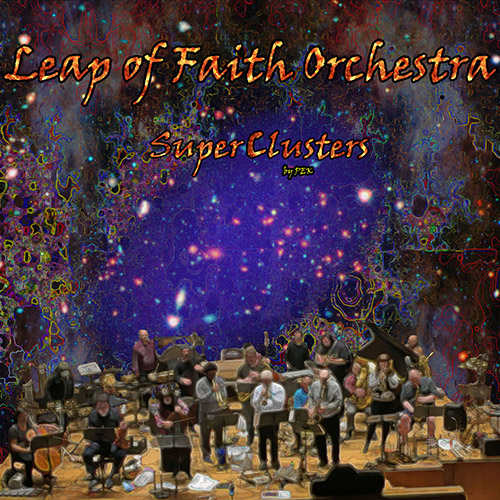



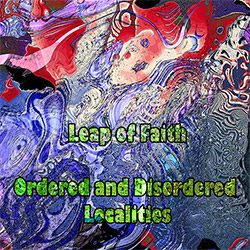
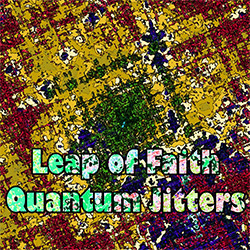
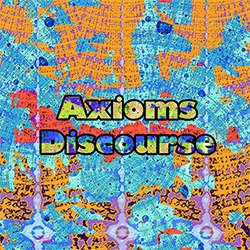
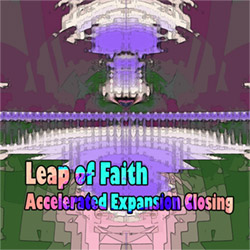
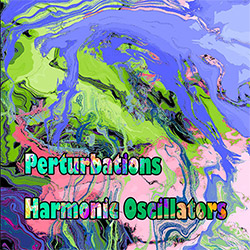
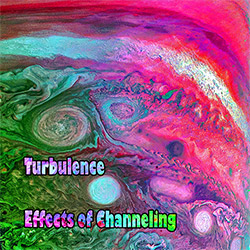

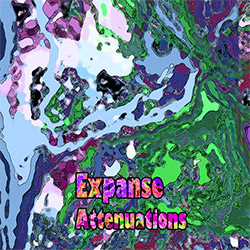
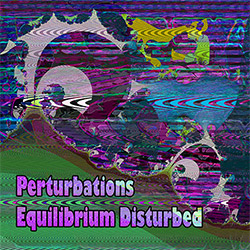

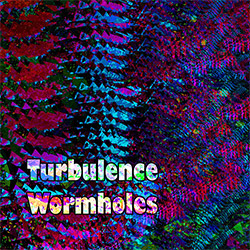
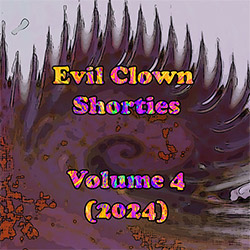

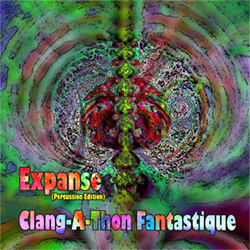
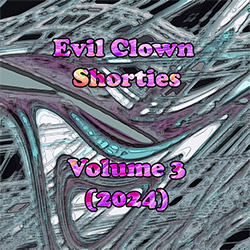


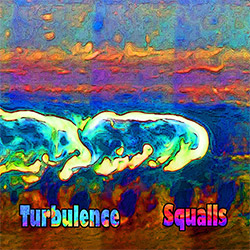

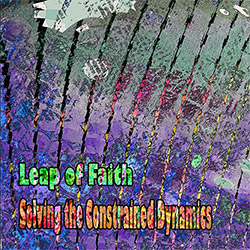


![Rodrigues, Ernesto / Nuno Torres / Guilherme Rodrigues: Whispers In The Moonlight - In Seven Movements [2CDs]](https://www.teuthida.com/productImages/misc4/35765.jpg)



![Cocks, Laura: FATHM [VINYL]](https://www.teuthida.com/productImages/misc4/36055.jpg)










![Ackerley / Prymek / Turner: All Hope With Sleeping Minds [CASSETTE]](https://www.teuthida.com/productImages/misc4/35950.jpg)
![Myers, David Lee : Tin Drop Tear [BOOK w/ DOWNLOAD]](https://www.teuthida.com/productImages/misc4/36030.jpg)


![Schindler, Udo / Sandy Ewen / Damon Smith: Munich Sound Studies Vols. 4, 5 & 6 [3 CDs]](https://www.teuthida.com/productImages/misc4/35966.jpg)






![Turbulence Orchestra & Sub-Units: Smear Out the Difficulties (Double Live) [2 CDs]](https://www.teuthida.com/productImages/misc4/36048.jpg)
![Perelman, Ivo / Tyshawn Sorey: Paralell Aesthetics [2 CDs]](https://www.teuthida.com/productImages/misc4/35871.jpg)


![Sjostrom, Harri: SoundScapes #4 Festival Berlin 2023 [3 CDs]](https://www.teuthida.com/productImages/misc4/35874.jpg)



![Glenn, Jordan: Flustered [CASSETTE]](https://www.teuthida.com/productImages/misc4/35948.jpg)
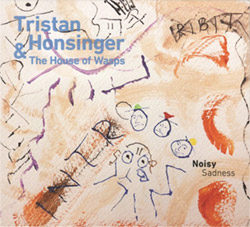
![Lindorff-Ellery, Evan: Church Recordings from Monhegan [CASSETTE]](https://www.teuthida.com/productImages/misc4/35949.jpg)
![Schindler, Udo / Werner Dafeldecker / Gunnar Geisse: Travelling Sound Images - Cognitive Transfers [Trio]](https://www.teuthida.com/productImages/misc4/35767.jpg)

![Egberth, Dennis: The Dennis Egberth Dynasty [VINYL]](https://www.teuthida.com/productImages/misc4/35549.jpg)


![Schindler, Udo / Rieko Okuda / Eric Zwang Eriksson: Disturbed Terrains [2 CDs]](https://www.teuthida.com/productImages/misc4/35330.jpg)






![Olencki, Weston : Pearls Ground Down To Powder [VINYL]](https://www.teuthida.com/productImages/misc4/35956.jpg)
![Myers, David Lee: Oculus [2CDs]](https://www.teuthida.com/productImages/misc4/35857.jpg)


![dustsceawung: dustsceawung [CASSETTE w/ Download]](https://www.teuthida.com/productImages/misc4/35753.jpg)




![Halls of the Machine: Atmospheres For Lovers And Sleepers [CASSETTE w/ DOWNLOAD]](https://www.teuthida.com/productImages/misc4/35806.jpg)



![AHC (Alexander Cooper): Lase [2 CDs]](https://www.teuthida.com/productImages/misc4/35754.jpg)



![Fagaschinski, Kai / Yan Jun : Graveyard Processions [VINYL w/ DOWNLOAD]](https://www.teuthida.com/productImages/misc4/35474.jpg)
![Brant, Cody / Carl Kruger: Smoke Detail [CASSETTE w/ DOWNLOAD]](https://www.teuthida.com/productImages/misc4/35551.jpg)








![Zorn, John / JACK Quartet: The Complete String Quartets [2 CDs]](https://www.teuthida.com/productImages/misc4/35609.jpg)

![Lonsdale, Eden: Dawnings [2 CDs]](https://www.teuthida.com/productImages/misc4/35480.jpg)







![Sanna, Claudio: Compositori Sardi Contemporanei II [2 CDs]](https://www.teuthida.com/productImages/misc4/35317.jpg)







![Zurria, Manuel: Fame di Vento [3 CDs]](https://www.teuthida.com/productImages/misc4/35167.jpg)

![Granberg, Magnus / Nattens Inbrott / Skogen: Holde Traume, Kehret Wieder! [2 CDs]](https://www.teuthida.com/productImages/misc4/35038.jpg)

![Electric Bird Noise / Derek Roddy: 8-10-22 [CD EP]](https://www.teuthida.com/productImages/misc4/35970.jpg)








![Elephant9 : Mythical River [VINYL]](https://www.teuthida.com/productImages/misc4/34624.jpg)



![Elephant9 with Terje Rypdal: Catching Fire [VINYL 2 LPs]](https://www.teuthida.com/productImages/misc4/35355.jpg)
![Deerlady (Obomsawin, Mali / Magdalena Abrego): Greatest Hits [VINYL]](https://www.teuthida.com/productImages/misc4/34876.jpg)







![Surplus 1980: Illusion of Consistency [CD]](https://www.teuthida.com/productImages/misc4/35069.jpg)
![Staiano, Moe: Away Towards the Light [VINYL + DOWNLOAD]](https://www.teuthida.com/productImages/misc4/35037.jpg)



![Caveira (Gomes / Sousa / Abras / Ferrandini): Ficar Vivo [VINYL]](https://www.teuthida.com/productImages/misc4/34643.jpg)
![Coley, Byron: Dating Tips for Touring Bands [VINYL]](https://www.teuthida.com/productImages/misc4/17906.jpg)

![Lost Kisses: My Life is Sad & Funny [DVD]](https://www.teuthida.com/productImages/misc4/lostKissesDVD.jpg)